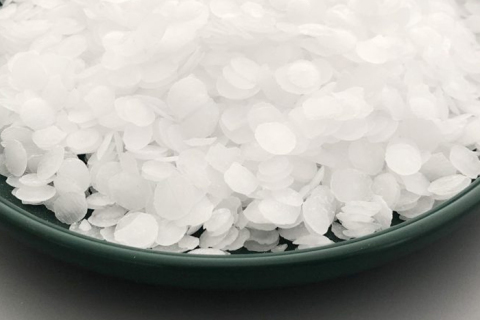
- Home
- >
- News
- >
- Product News
- >
News
HPEG, or Hydroxy Polyether Glycol, is a versatile chemical compound widely used in the construction industry. It serves as a water-retaining agent, thickener, and stabilizer in various applications.
VAE RDP (Vinyl Acetate-Ethylene Copolymer Redispersible Powder) is a widely used additive in the construction industry. Produced through spray-drying technology, VAE RDP is available in powder form, offering excellent redispersibility. When it comes into contact with water, it quickly forms a stable emulsion, significantly enhancing the performance of building materials.
PCE Powder, short for Polycarboxylate Ether Powder, is a new type of high-performance concrete admixture. It is primarily used to improve the workability and performance of concrete, widely applied in construction, infrastructure, and precast elements.
In the modern construction industry, the quality of concrete directly affects the safety and durability of projects. As a leading chemical company, we are proud to introduce our Polycarboxylate Superplasticizer Monomer — HPEG (Hydroxy Polyether Glycol). HPEG not only improves the fluidity of concrete but also enhances its strength and durability, making it an ideal choice for your engineering projects.
In the modern construction industry, VAE Redispersible Polymer Powder (RDP) has become an essential material for enhancing mortar performance. It not only improves the durability of the mortar but also effectively reduces construction costs, making it an indispensable innovative product in the building sector.
Polycarboxylate superplasticizer (PCE) is a high-performance chemical building material widely used in the production of concrete, mortar, and other construction materials. As an essential component of modern concrete technology, polycarboxylate superplasticizer significantly enhances the workability, strength, and durability of concrete.
In the competitive world of construction, choosing the right materials can make all the difference. Hydroxypropyl Methylcellulose (HPMC) is not just another additive; it's a strategic partner in achieving exceptional results for ready dry mix mortars.
In the world of construction, achieving the perfect concrete mix is crucial for durability and performance. One of the key components that can significantly improve your concrete's workability and strength is Concrete Superplasticizer Monomer TPEG. This innovative product is designed to meet the demands of modern construction projects, ensuring you achieve superior results every time.
Polyvinyl Chloride (PVC) paste resin plays a crucial role in the construction industry, making it a popular choice for modern building materials due to its excellent physical and chemical properties. This material not only offers outstanding plasticity and processability but also meets various construction needs.
Industrial Grade Hydroxypropyl Methylcellulose (HPMC) is a versatile additive widely used in the construction materials industry. It provides exceptional performance characteristics for wall putty and tile adhesives, making it an indispensable key ingredient in these products.
PCE Polycarboxylate Ether Powder is a high-performance concrete and mortar construction admixture, widely used in various building projects.
PCE High Range Water Reducing Concrete Admixture is an innovative concrete admixture based on the latest polycarboxylate ether (PCE) technology. It can significantly reduce the moisture content in concrete while maintaining the required workability and flowability. This unique formulation offers numerous benefits, such as increased compressive strength, reduced permeability, and extended slump retention, making it ideal for high-performance concrete projects.












